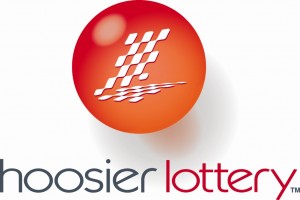The Indiana Lotto
The Indiana Lotto is known as ‘Hoosier Lottery.’ It is run by the government of the state of Indiana. It is the only US lottery that uses its state’s nickname, rather than the state’s name itself, as a name. It has been selling lottery tickets since 1989, after being approved by a majority of voters in a lottery referendum the previous year. Since then it has paid out $8.7 billion in prizes and has contributed $4.2 billion to the state of Indiana. It operates several games such as Mega Millions and Quick Draw, as well as various scratch cards and promotions.
The Hoosier Lottery’s mission statement is to ‘return maximum net income to the state in a socially responsible manner.’ One of the ways to achieve this goal is by contributing to state funds that includes the Teachers’ Retirement fund, the Police Officers’ and Firefighters’ Pension and Disability fund and the Build Indiana fund, which has since used the money to help keep state citizens’ motor vehicle excise tax law. They also award commission and bonuses to local retailers who sell their games. The organization publishes its yearly contributions via an annual report found on their official website.
The current executive director is Karl Browning. He was appointed so by the governor of Indiana, Mitchell Daniels, in 2011. His succession oversees a time when Hoosier Lottery has come under fire for ‘extravagant spending’ during its relocation and remodelling. This accusation was triggered by a visit by WTHR investigative reporter Bob Segall. Then-director Kathryn Densborn took him for a tour and tried to pass items such as $200 clocks and $11,500 work tables as ‘cost effective’ to the investigator.
William Zielke, chairman of the lottery commission; an organization, which exists to regulate the workings of Hoosier Lottery, condemned the behavior implying that it did not befit a government agency. It also invoked several responses from the public and private sector. The resulting public scandal is speculated to have led to the subsequent departure of Kathryn Densborn. Densborn had no answer to questions about why she resigned. Hoosier Lottery has since admitted to their overspending and implemented changes in policies, which will curb future excesses in spending.
Other key staff consist of Susan Golightly, who is responsible for market research and development; Jeff Goltz, who is responsible for technical services, Tim Kuehr, who is responsible for financial; Irene Lange, who is responsible for sales plans and initiatives; Tracy McNutt, who is responsible for the organization of human resources; Jim Nash, who is responsible for protecting employees and assets of Hoosier Lottery and Carrie Stroud, who is responsible for developing audits in order to monitor fraud and perform risk assessments.
Check out the Indiana Hoosier Lottery Syndicate as well.
